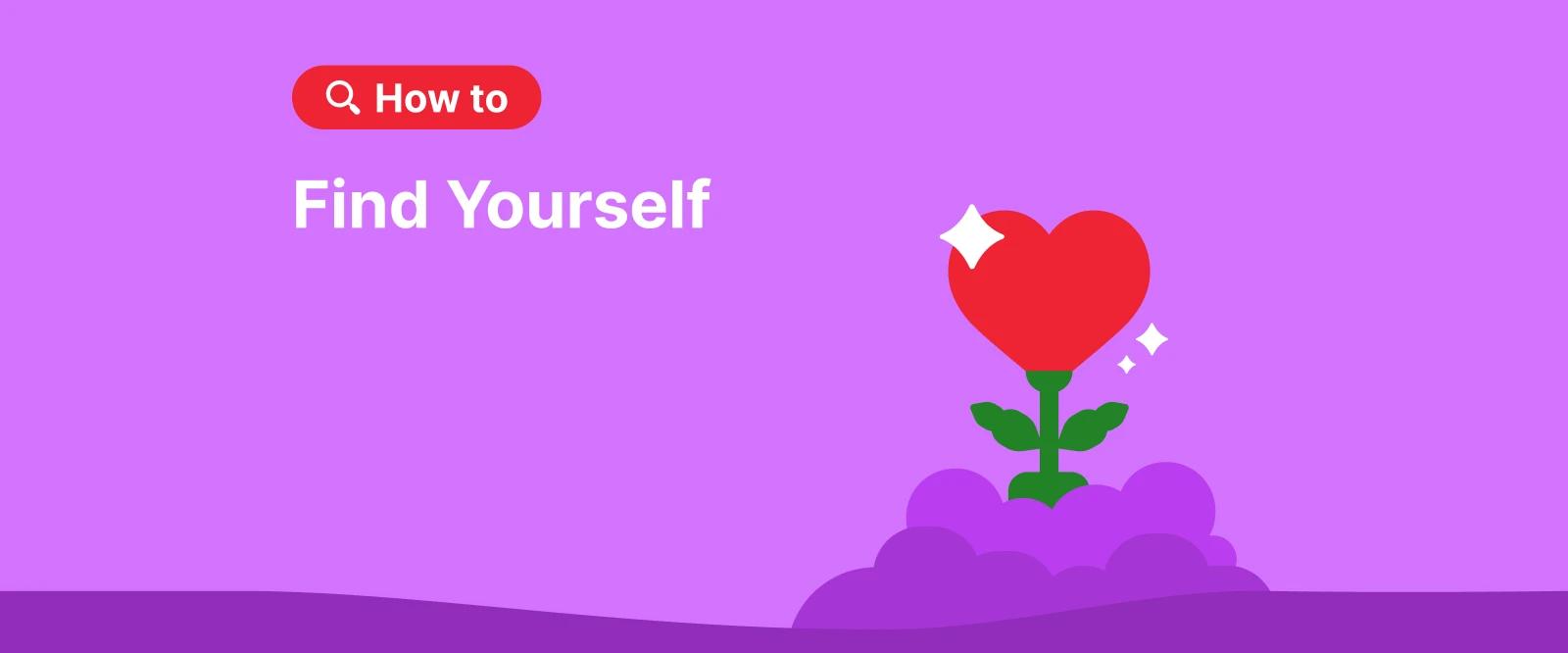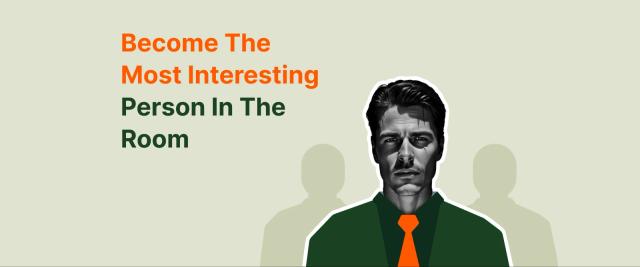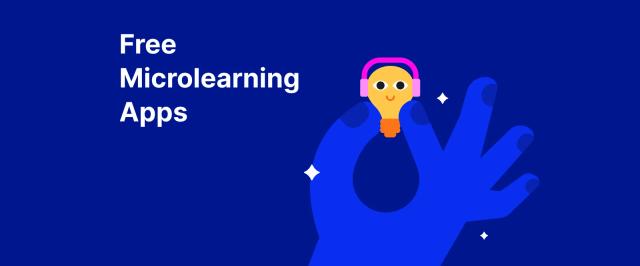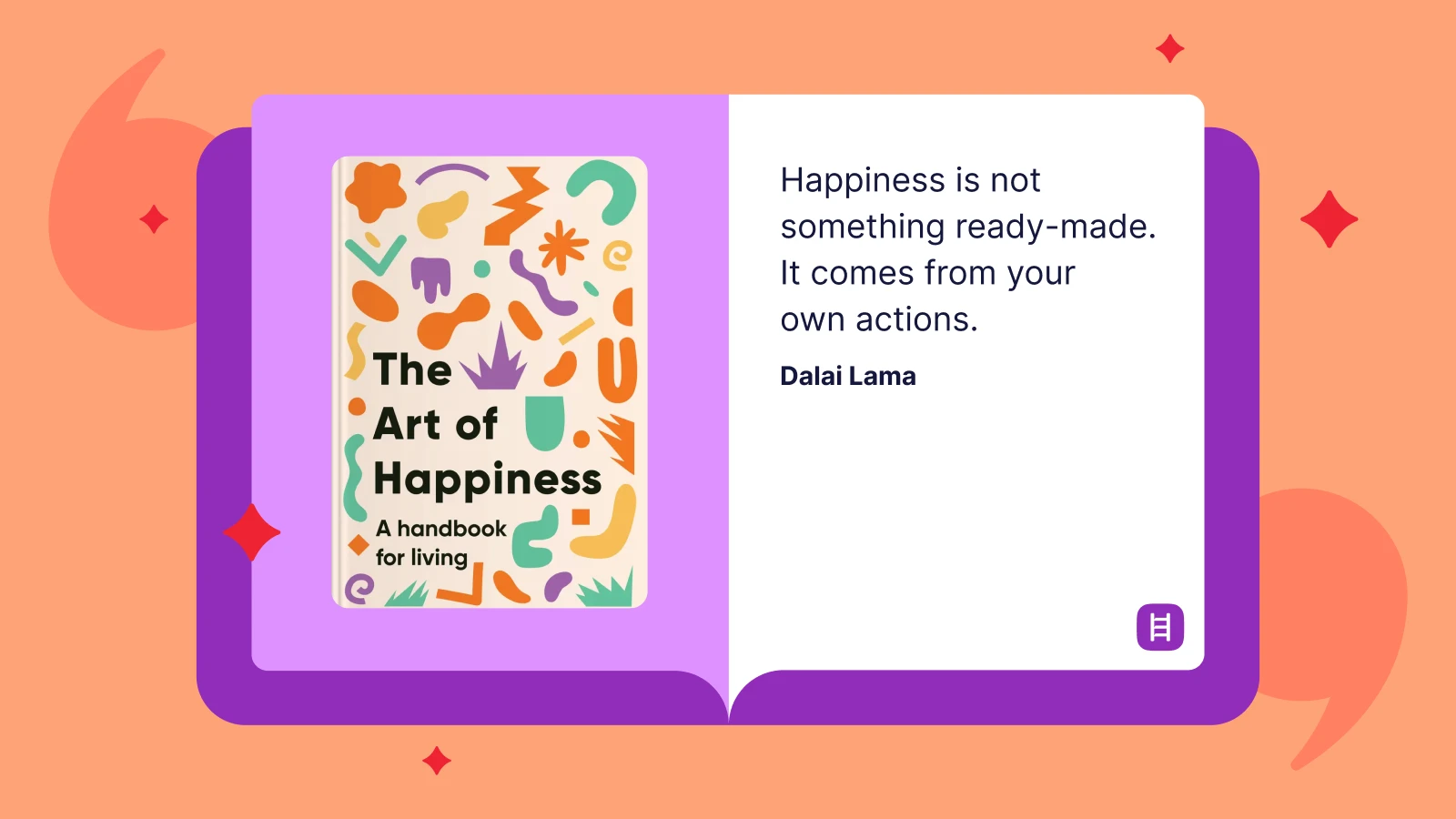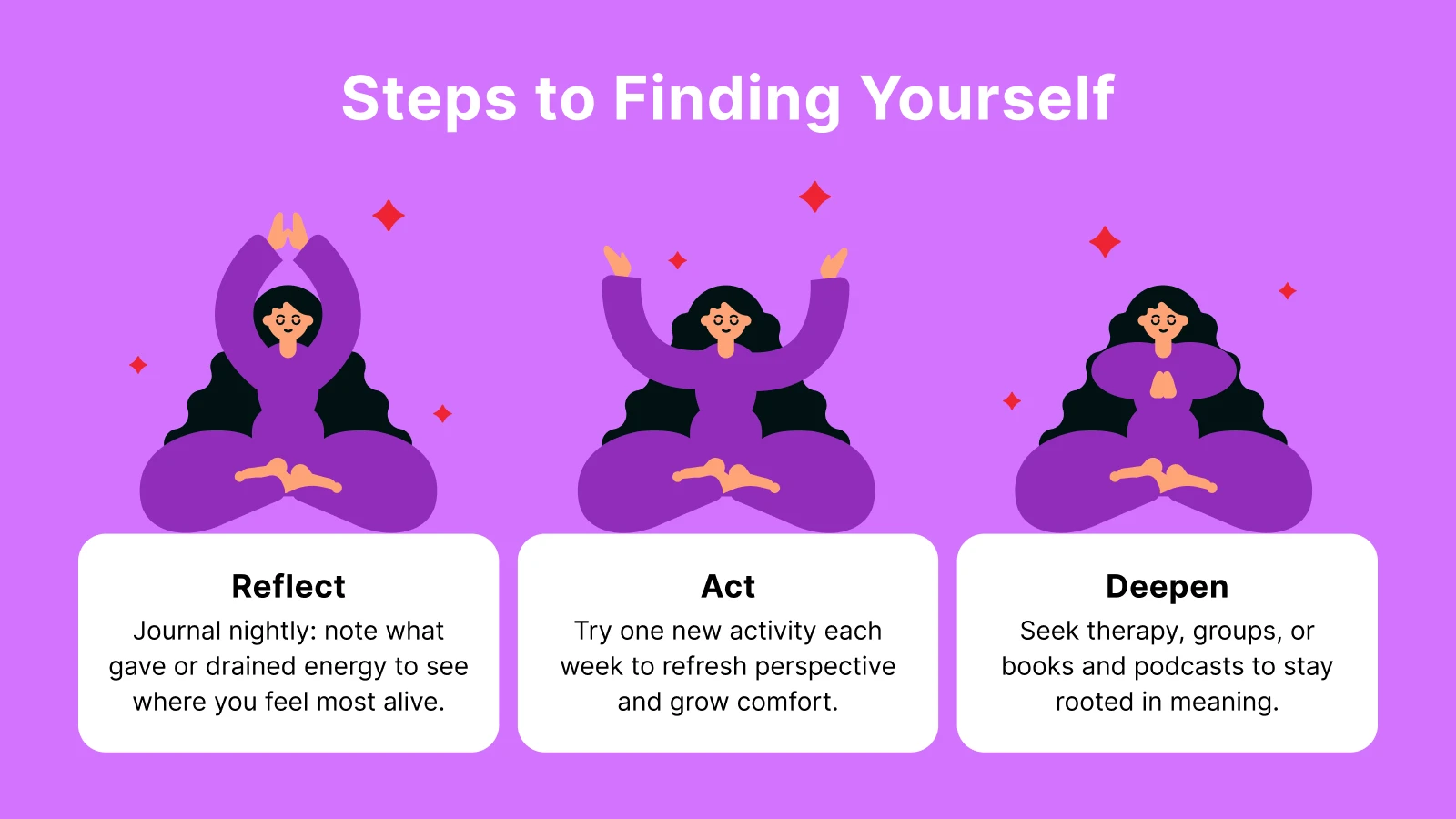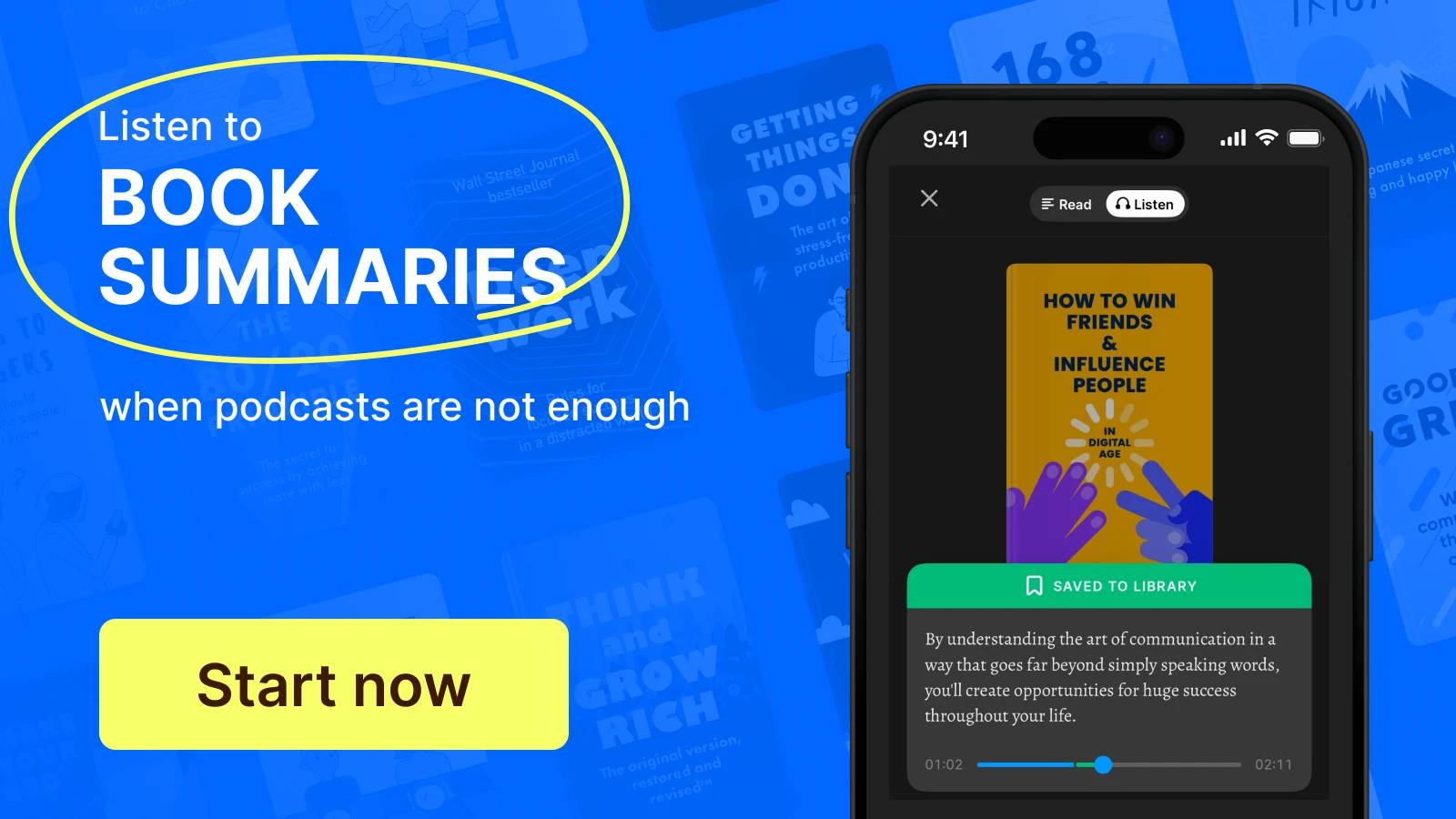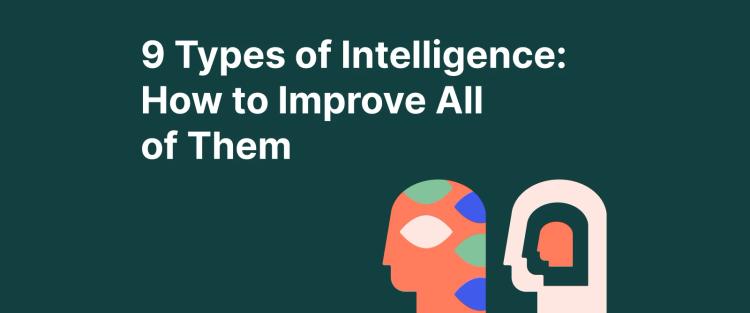Half of us wonder how to find yourself at some point in life. That question — who am I, really? — often surfaces after major life experiences like a breakup, job loss, or late at night while scrolling. In those moments, it feels like you've lost touch with your real self, the authentic self beneath noise, roles, and expectations.
Philosophers from Socrates to the Dalai Lama taught that self-reflection is the beginning of wisdom. Today, self-discovery is more urgent than ever — not just philosophy, but a foundation for mental health, wellness, and purpose.
As a somatic practitioner and personal growth coach, I've seen that finding yourself isn't a one-time epiphany but a practice. That's why tools like Headway exist: to make wisdom practical. Together, they guide you step-by-step through three stages — reflect, act, deepen — supported by book summaries that light each journey stage.
Quick tips on how to find yourself
If you feel lost, start small. These short practices are easy entry points before diving deeper:
Spend time alone daily: Even ten minutes without distractions helps you hear your own thoughts and feelings.
Write down your values: Listing five things that matter most gives your sense of purpose a foundation.
Limit comparison: Social media often fuels self-doubt — reduce scrolling and redirect your focus to your own life.
Try something new: A class, a walk in a new neighborhood, or a podcast outside your usual taste expands your horizons.
Check your self-talk: Ask: Would I speak this way to a loved one? If not, shift your tone.
Notice your body: Scan for tension in shoulders, jaw, or chest — relaxing them can bring surprising clarity.
Talk with trusted loved ones: Sometimes, others spot your strengths and blind spots more clearly than you.
Prioritize self-care basics: Sleep, movement, and nourishing food aren't luxuries or negotiables; they shape self-esteem.
If you’re unsure where to start, Headway’s bite-sized summaries can give you daily exercises pulled from the world’s best books. Because quick tips aren’t final answers, just quick recalibrations. Next up: a quiz to test how well you already know yourself.
Short quiz: Do I really know myself?
Choose your answers — and be honest with yourself:
Whichever path you landed on, you can dive deeper right in the Headway app. It’s like having a self-discovery toolkit in your pocket.
📘 Start your journey to yourself now.
A trauma-informed view of self-discovery
For many people, especially those who have lived with complex trauma (C-PTSD), "finding yourself" can feel less like a choice and more like reclaiming something that was taken away. Trauma often fragments the sense of self — leaving you feeling disconnected, numb, or like you're living someone else's life.
Quick quiz: Have you lost touch with your true self?
Self-discovery is still possible, though the way forward is slower and more compassionate. Healing doesn't come from forcing change, but from creating enough safety for your authentic self to resurface.
Trauma-informed practices to begin with:
Grounding rituals: Simple breathwork, body scans, or mindful walks to anchor you in the present.
Safe reflection: Instead of diving into painful memories, start by journaling what makes you feel calm or unsafe today.
Trusted connection: Healing happens in relationships. Being seen without judgment restores self-trust, whether with a therapist, support group, or trusted friend.
Compassionate pacing: Move slowly. Progress isn't linear, and rest is part of your healing.
The Headway app offers structured guides that summarize therapeutic classics, so you don’t have to start from scratch when reclaiming your authentic self.
Using a trauma-informed lens to explore yourself ensures that you're not only "finding yourself" but also creating the safety to stay connected once you've done so.
📘 Heal gently with Headway.
5 practical steps on how to find yourself
The heart of this journey lies in five domains. Each connects to one of Headway's book summaries and offers concrete exercises.
1. Define your personal values and purpose
Rachel Cruze's 'Know Yourself, Know Your Money' reveals a surprising truth: our money habits reflect our deeper values. If you overspend on status items, recognition may drive you. If you save obsessively, security matters most. Aligning your finances with your authentic self is a great starting point.
Mini exercise: Write down three money choices you made this week. What values do they reveal? Do those values feel aligned with the real you?
Practical steps:
List your five core values (freedom, family, creativity, etc.).
Check if your calendar and spendings reflects them.
Adjust one small choice this week to better mirror your authentic self.
Why it matters: This isn't meant to induce guilt — it's all about self-knowledge. Values are the compass of your self-discovery journey.
2. Search for meaning in everyday life
In 'Man's Search for Meaning,' Holocaust survivor Viktor Frankl shows that purpose transforms even suffering into strength. "Those who have a 'why' to live can bear almost any 'how.'"
Mini exercise: Choose one challenge in your life right now. Ask: What meaning could I give this? How could it shape the person I want to become?
Practical steps:
Reflect on one past struggle and write down what it taught you.
Identify three activities this week where you can connect to a deeper "why."
Release one goal that feels empty, even if society praises it.
Why it matters: Meaning isn't discovered once — it's a daily practice of reflection, connection, and resilience.
3. Practice daily self-love and compassion
Kamal Ravikant's 'Love Yourself Like Your Life Depends on It' argues that self-love isn't optional — it's survival. He describes how repeating "I love myself" in the mirror shifted his own self-worth and mental health.
Mini exercise: Each morning, look in the mirror and say, "I love myself." Notice your inner child's reaction — resistance, shame, or relief. Repeat until the words feel more natural. You can also try less intense forms, such as, "I appreciate myself," "I am safe," or "I accept myself."
Practical steps:
Use compassionate self-talk when you make mistakes.
Write one kind sentence to yourself in your daily journal.
Practice one act of self-care, such as a walk, a nap, or time with loved ones.
Why it matters: Self-love builds self-esteem and lets you let go of perfectionism. It's not selfish. It's how you meet your authentic self waiting beneath old narratives.
📘 Discover your authentic self with Headway.
4. Build mindfulness and inner peace
In 'Mindfulness,' Mark Williams and Danny Penman teach that awareness anchors us in the present. Most of us live on autopilot, pulled by social media, stress, and habits. Mindfulness interrupts the loop, grounding us back to our authentic selves.
Mini exercise: Try a one-minute breath scan. Inhale for four counts, and exhale for four counts. Pay attention to sensations, not thoughts.
Practical steps:
Set a phone reminder and pause three times daily for a mindful breath.
Replace one doom-scroll session with ten minutes of mindful walking.
Journal about your thoughts without judgment.
Why it matters: Mindfulness strengthens your well-being, expands your comfort zone, and improves mental health by teaching you to let go of spirals that no longer serve you.
5. Cultivate authentic happiness
In 'The Art of Happiness,' the Dalai Lama explains that joy isn't random — it's trained. "Happiness is not something ready-made. It comes from your own actions." By practicing compassion toward loved ones and strangers alike, we discover that happiness grows when shared.
Mini exercise: Before bed, list three small moments of kindness you gave or received today.
Practical steps:
Express gratitude to a loved one daily.
Volunteer or help someone without expecting anything back.
Reflect on how compassion shapes your sense of purpose.
Why it matters: True happiness isn't about chasing pleasures — it's about cultivating habits that make you the person your authentic self wants to be.
Quiz: Which path of self-discovery do you need most?
Answer honestly. Each choice points you toward a deeper resource.
How to bring self-discovery into your daily life
Finding yourself isn't abstract; it's about weaving reflection, action, and depth into ordinary days.
Reflect: Journal each evening. Ask, What gave me energy? What drained me? This simple check-in builds self-awareness and shows where your authentic self feels most alive.
Act: Try one new activity every week — a class, a hobby, or even a different walking route. New experiences refresh your perspective and expand your comfort zone.
Deepen: Seek therapy, join a support group, or explore communities, books, and podcasts that ground you in meaning.
Remember, self-discovery isn't a destination — it's a cycle of noticing, experimenting, and integrating. If you’re curious about simple daily habits to fuel your growth, explore self-discovery with Headway.
Philosophical roots: Know thyself
"Know thyself" means understanding your own mind before trying to master the world. The phrase became ancient Greece's highest wisdom, first carved into the Temple of Apollo at Delphi. Today, psychology echoes it: self-awareness builds resilience, stronger relationships, and better life decisions.
Quick insights:
Clarity: Self-awareness helps you see repeated patterns in your life.
Purpose: Knowing your values makes your goals feel aligned.
Guidance: Your inner voice becomes a compass through uncertain times.
The invitation remains the same across philosophy, therapy, and modern self-help: know yourself, and you'll navigate life with more clarity, purpose, and resilience.
Why finding yourself truly matters
Finding yourself means gaining confidence, resilience, and direction. Instead of chasing social media validation or external approval, you build self-worth from within. This inner grounding strengthens your mental health and helps you trust your thoughts and choices.
The benefits go beyond confidence. Self-discovery teaches you how to turn setbacks into lessons, uncertainty into growth, and daily life into meaningful progress. Clarity about who you are makes decisions feel less overwhelming and relationships more authentic.
Psychiatrist Viktor Frankl observed that people can endure almost anything if they have a "why" to live. That's why finding your purpose isn't a luxury — it's survival. Anchoring your authentic self in meaning transforms challenges into wisdom and makes life's journey steadier, more fulfilling, and more resilient.
Start your journey of self-discovery with Headway today
Your most authentic self awaits — and Headway can guide you there. With daily summaries, reflection prompts, and practical wisdom, you’ll always have a compass for how to find yourself.
This journey isn’t about becoming someone else; it’s about uncovering who you already are. Headway curates the voices of timeless teachers — from Viktor Frankl's search for meaning to Kamal Ravikant's radical self-love, the Dalai Lama's wisdom on happiness, Rachel Cruze's reflections on money and values, and Williams & Penman's teachings on mindfulness — so every step of self-discovery feels supported, structured, and sustainable.
📘 Claim your true self with Headway.
Frequently asked questions on how to find yourself
What does it mean to find yourself?
Finding yourself means reconnecting with your authentic self — the part of you beyond roles, expectations, and social media. It involves reflecting on values, aligning daily choices with purpose, and practicing self-awareness. The Headway summary of 'Man's Search for Meaning' offers deeper guidance on how to find yourself through meaning and resilience.
Why do I feel lost in life?
Feeling lost often comes from ignoring your authentic self, living only for others, or staying in your comfort zone too long. Past experiences can cloud self-worth and direction, but reflection and new practices can rebuild clarity. The Headway summary of 'Mindfulness' shows how awareness grounds you when life feels overwhelming.
How do I start the journey of self-discovery?
The best way to start is by reflecting: journaling your thoughts, values, and emotions. Then take small risks — try new experiences, connect with different communities, or release old limiting stories. The Headway summary of 'Love Yourself Like Your Life Depends on It' gives daily practices for building resilience and self-love.
Can finding myself improve my relationships?
Yes. When you know your authentic self, you communicate more clearly, set healthier boundaries, and offer compassion without losing yourself. Happiness also grows when shared, as the Dalai Lama explains in 'The Art of Happiness.' The Headway summary shows how cultivating joy and compassion can strengthen self-discovery and connection.
How long does it take to find yourself?
There's no fixed timeline — self-discovery is less a destination and more a cycle. Each stage of life brings new questions like: Who am I now? What kind of person do I want to be? The Headway summary of 'Know Yourself, Know Your Money' helps clarify values at different stages, offering practical steps to finding yourself.

